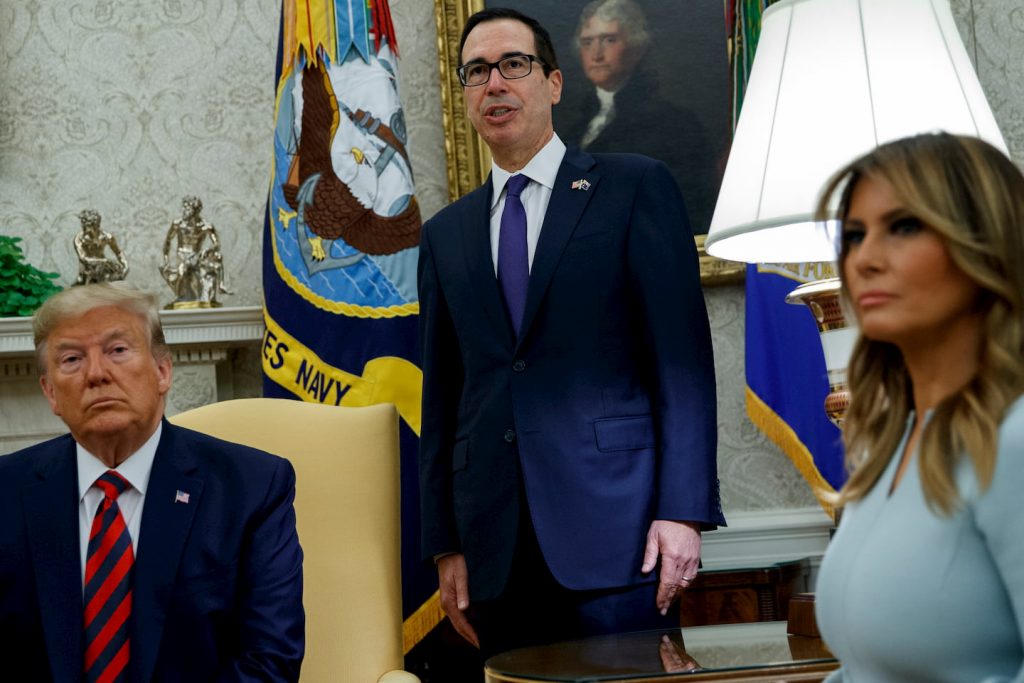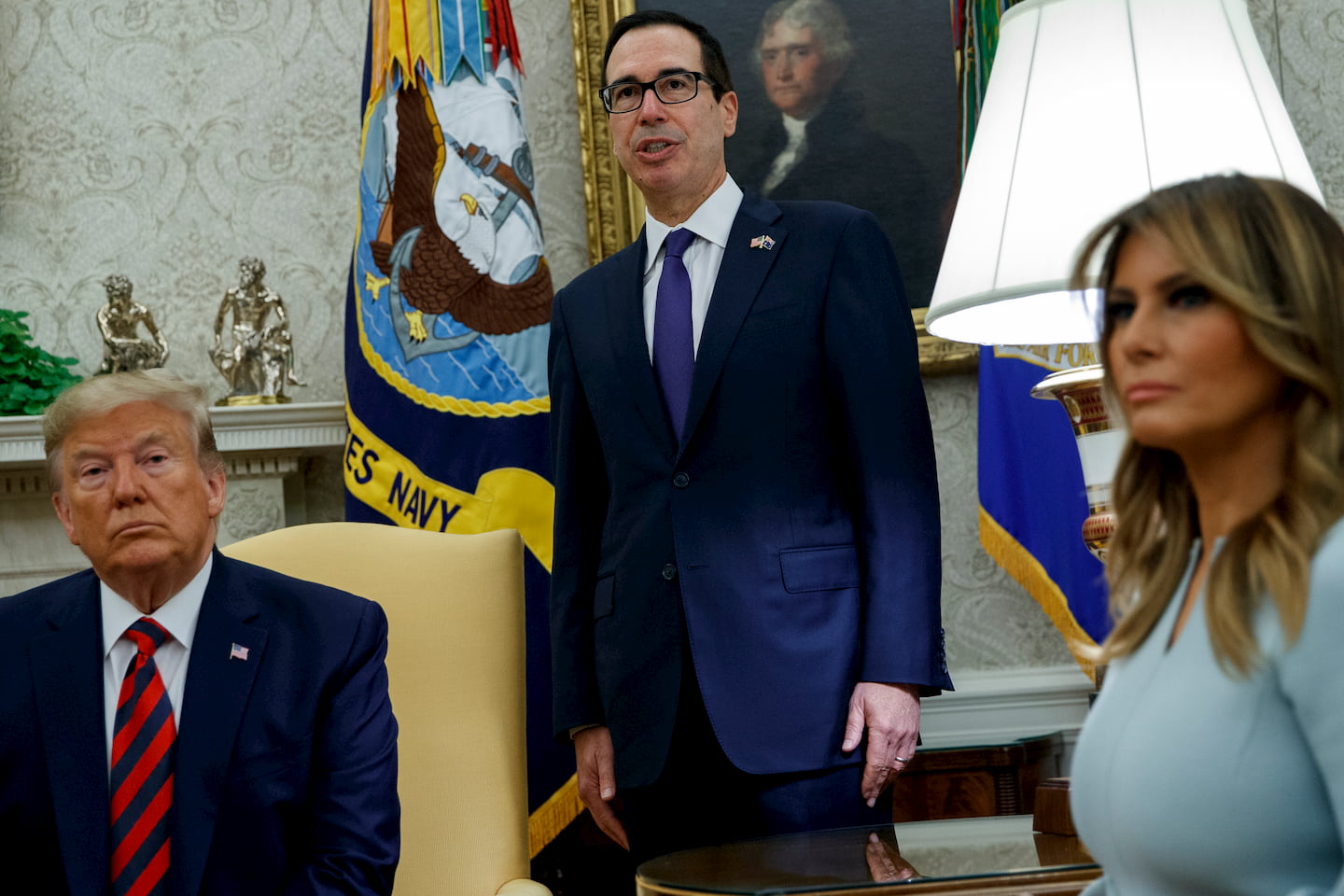The United Nations Security Council (UNSC) may have to decide in 2020 whether to reinstate sanctions on Iran for that country’s failure to keep its commitments pursuant to the Joint Comprehensive Plan of Action (JCPOA), aka Iran Nuclear Deal. The JCPOA could come crashing down, as the 15-member Security Council considers a series of reports which will confirm Iran’s non-compliance with the terms of the agreement. These reports will follow the International Atomic Energy Agency’s (IAEA) report in November 2019, which confirmed significant violations of the JCPOA by Iran. Perhaps, fortuitously, the Security Council’s rotating presidency puts the United States (US) in charge of the Council’s agenda for December 2019, but the US will have no control over Council action against Iran.
The Council received a series of reports in December: the Secretary General’s report on the implementation of resolution 2231 (2015), which approved the JCPOA and ended UN proliferation sanctions against Iran; the report of the Joint Commission, which was established by the parties to the JCPOA to monitor implementation of the agreement; and the report of the resolution 2231 Facilitator. These reports will include Iran’s noncompliance. Yet, re-imposing UN sanctions on Iran, a Trump Administration objective, is not a fait accompli. As a non-participant State in the JCPOA, the US Government cannot determine one way or the other. Such determination rests primarily with the European State parties.
The European participants are already under significant pressure to find ways to circumvent US sanctions on Iran and preserve the JCPOA. With Iran’s progressive noncompliance, there may be a limit as to how far the Europeans are willing to go to persuade Iran to reverse course. Yet, they are not ready to end the JCPOA, which has been on life support since President Donald Trump withdrew the US from the agreement in 2018. Will their efforts to preserve the JCPOA reach a tipping point in 2020?
The UNSC could vote on a resolution confirming Iran’s violations of fundamental provisions of the agreement, and if it concludes that it has, whether the UN sanctions, which ended with the unanimous Council decision in resolution 2231 should be reinstated. However, any attempt at such a resolution would face certain veto by Russia and China. But, a veto would not let Iran off the hook.
The European participants have taken steps to maintain the JCPOA, including the creation of mechanisms to circumvent Trump’s unilaterally imposed sanctions. Iran is demanding more. Iran’s government maintains that their efforts, though significant, have not gone far enough. Iran’s economy is being ripped to shreds by the US sanctions – the harshest and broadest ever by any US Administration. The US has targeted Iran’s Government, government-controlled entities, and individuals. The impact of US sanctions on Iran’s economy will get significantly worse.

In response, Iran has reverted to conduct which violates commitments which are fundamental to the efficacy of the JCPOA, in part, to force further relief. Iran must determine whether the efforts so far by the Europeans are in vain. Already skirting the margins of outright violations of US sanctions, the European State parties are facing a dilemma. Should Iran continue the path of noncompliance, they will find it increasingly difficult to maintain their resolve and stretch the limits to satisfy Iran’s demands. To say Iran’s violations place the Europeans under pressure is an understatement.
As the president of France recently opined, Iran’s actions as reported by the IAEA, and statements from Iran’s leadership indicates Iran intends to violate the agreement. The Europeans are shaken by this new reality, and Iran will have to change course in order to maintain unity among the Europeans to avoid total collapse of the JCPOA and reinstatement of UN sanctions.
While it is incumbent on Iran to return to compliance or face re-imposition of UNSC sanctions, lest we forget, this imbroglio was triggered by Trump’s decision to withdraw from the JCPOA. Prior to the US withdrawal, the IAEA reported that Iran was in compliance. This was confirmed by the US intelligence community and US Department of Defense. The other participants in the JCPOA were unanimous on the issue of Iran’s compliance and had urged President Trump to keep the US in the agreement and not to impose sanctions on Iran. The US president defied the advice of the US intelligence agencies and the Defense Department, which said that maintaining the JCPOA was in the national security interest of the United States. He acted in a manner most regard as reckless to undo yet another significant foreign policy achievement of the Obama Administration.
President Obama’s Secretary of State, former Senator John Kerry, who led the collective negotiations with Iran, issued a scathing criticism of Trump’s decision on the day it was announced. Senator Kerry’s statement warned of the dangers that would ensue from Trump’s “reckless” decision. He said:
“President Trump’s decision today is dangerous. He’s creating an international crisis. It endangers America’s national security interests and those of our close allies. It’s a reckless abandonment of facts in favour of ego and ideology from a president who would rather play a high-stakes game of chicken with the Congress and with Iran than admit the nuclear agreement is working.”
Kerry said he hoped the other parties, in spite of the false accusations about Iran’s noncompliance at the time, would prove to the world what responsible behaviour is, and adhere to the JCPOA.
The Europeans have lived up to Kerry’s expectations, but pressure on them increases with each further violation of the agreement by Iran. If there is a break in European resolve, the JCPOA will come crashing down.
Resolution 2231 established the procedures for reinstatement of sanctions in the event of Iran’s non-compliance. It does not require an affirmative vote by the Security Council. None of the permanent members can force or prevent reinstatement of the original UN sanctions. Should the Council fail to act in response to Iran’s violations, the sanctions can snapback automatically if a participant State notifies the Council “of an issue which constitutes significant non-performance of commitments under the JCPOA”. The nuclear proliferation sanctions which ended pursuant to the resolution would be reinstated automatically after 30 days.
Without the power of the veto, China, Russia, and the United States are relegated to the sidelines in the decision-making process. Moreover, the United States as a non-participant State cannot force any action against Iran. Only participating states can determine what action might be taken, and the Trump Administration abandoned its role upon withdrawal from the JCPOA.
The pressure on European countries to ditch the JCPOA will increase exponentially with Iran’s violations. Iran offered to return to compliance with the terms of the JCPOA should the Europeans take further action to protect the Iranian economy from the debilitating effects of Trump’s sanctions. However, if they go too far, their actions may be in direct violation of the US sanctions, a situation which could trigger secondary sanctions on European financial institutions, and other critical areas of their economies, as well as extra-territorial reach to affect Europe-linked economies.
Trump’s withdrawal severely damaged the JCPOA’s foundation. Iran’s violations create gaping holes in the walls of the agreement. Resolution 2231 snapback provision could be the wrecking ball that collapses the structure. Should this occur, Trump will claim victory against Iran. But, it would be a pyrrhic victory. Russia, and perhaps China, would gain greater geopolitical and geostrategic operational space in the region. In my assessment, Russia will take full advantage, but China may be a bit more cautious about engaging more deeply into an unstable Middle East environment over which it has little control. While Iran is in Russia’s geopolitical and strategic sphere, China’s strategic interest in Iran is primarily as an energy source. The US will be the big loser, and an already volatile Middle East will become even more dangerous.
Regardless of the immediate outcome, Iran will be a significant and controversial issue on the Security Council’s agenda throughout 2020. The world will be a more dangerous place.
Ambassador Curtis Ward is a former ambassador of Jamaica to the United Nations with responsibility for Security Council affairs. He is the publisher of The Ward Post.
Viewpoints is committed to expanding its range of opinions and commentary. Share your views about this or any of our articles. Email feedback to viewpoints@gleanerjm.com.







